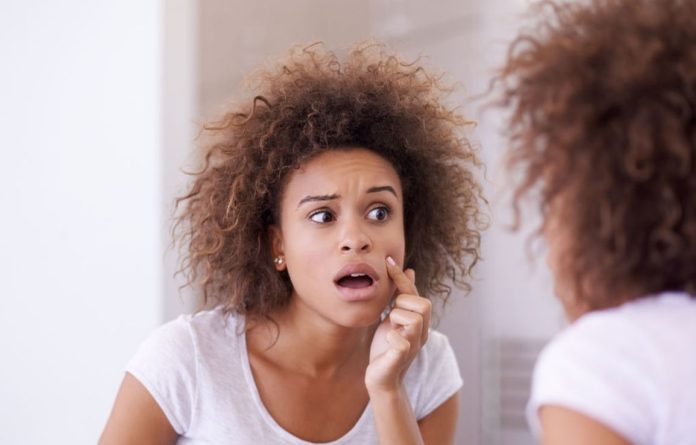Doctors warn – this disorder could have a huge impact on a person’s ability to engage with normal areas of life, for example, they made avoid social or public situations.
Over the last year it’s been reported that excess time spent seeing ourselves on screen in the form of video calls has resulted in more people wanting cosmetic surgery.
Observing ourselves (often smashed) alongside our friends and colleagues far more regularly has, for some people, triggered anything from mild insecurity to severe unhappiness.
‘Facial’ dysmorphia or any other term coined around this is actually speaking to the same mental illness, which with the right treatment can be helped.
But this is different to Body dysmorphic disorder (BDD), which is not a new thing (and yes, includes the face) – though the impact of the pandemic has been triggering for those experiencing BDD.
- Does This Mean We Stopped Being Animal and Started Being Human Due to ‘Copy Paste’ Errors?
- The One Lifestyle Choice That Could Reduce Your Heart Disease Risk By More Than 22%
- Aging: This Is What Happens Inside Your Body Right After Exercise
- Immune-Boosting Drink that Mimics Fasting to Reduce Fat – Scientists ‘Were Surprised’ By New Findings
- Gun Violence in America: What They Don’t Talk About at the Debate
Kitty Wallace from the BDD Foundation explains to Metro.co.uk:
Although the media have coined various terms for BDD over the years such as “snapchat dysmorphia” or “facial dysmorphia”, they are all examples of the same condition: Body Dysmorphic Disorder.
She says scattered terminology of the same condition can be dangerous, as it can stop people from noticing signs of BDD.
It could be ‘trending’ or of the moment to be more aware of your face due to the changes the pandemic has imposed on our lives, but the BDD Foundation echoes for greater awareness around this.
The mental health condition affects roughly one in 50 people, and Kitty says it’s ‘an anxiety disorder that is characterized by a preoccupation with a perceived defect or flaw in appearance.
The perceived flaw could be anywhere on the body but common areas of concern are the skin, nose, hair, eyes, chin, lips and overall body build.
Many people are concerned by their appearance in some way, but the difference is in how distressing this is for the individual.
Common signs can include (but are not limited to):
- A high amount of distress over a particular body part or feature
- Spending many hours of the day worrying about it
- Feeling intense disgust and shame
These feelings can have a huge impact on that person’s ability to engage with normal areas of life, for example, they made avoid social or public situations
This can lead to individuals becoming housebound. Sadly, there is a high suicide rate with this condition.
Dr. Mahsa Saleki, a cosmetic doctor and founder of SAS Aesthetics says that she’s noticed a rise in clients displaying potential signs of BDD.
Since coming back to work after lockdown, a lot of clients would explain that they have developed new concerns due to the way they interact with others through video calls.
Before when having a conversation normal interactions meant that you were looking at the person you were speaking to but now people are watching themselves and seeing more of their perceived imperfections.
Due to this, she’s added the following screening questions to patients before confirming treatments:
- Do you find yourself carrying out lots of behaviours (such as mirror checking, grooming) in an effort to cope with your appearance worries?
- Do you spend an hour or more worrying about your appearance?
- Do your appearance worries cause you distress and/or get in the way of daily activities? (Such as work and your social life)
If a patient answers yes to one of the above we tend to explore around the subject.
Other patients answering more yes to more than one question above will be asked to complete the Body Dysmorphia Survey via the BDD Foundation website, this will give a clinical indication for referral to tertiary services for further diagnosis and counseling if needs be
It’s important to point out that BDD isn’t the same as disliking a feature and there is help available for those experiencing the condition.
Advised help includes cognitive behavior therapy (CBT), SSRI medication and joining a support group, depending on the individual case.
- Does This Mean We Stopped Being Animal and Started Being Human Due to ‘Copy Paste’ Errors?
- The One Lifestyle Choice That Could Reduce Your Heart Disease Risk By More Than 22%
- Aging: This Is What Happens Inside Your Body Right After Exercise
- Immune-Boosting Drink that Mimics Fasting to Reduce Fat – Scientists ‘Were Surprised’ By New Findings
- Gun Violence in America: What They Don’t Talk About at the Debate
Image Credit: iStock
